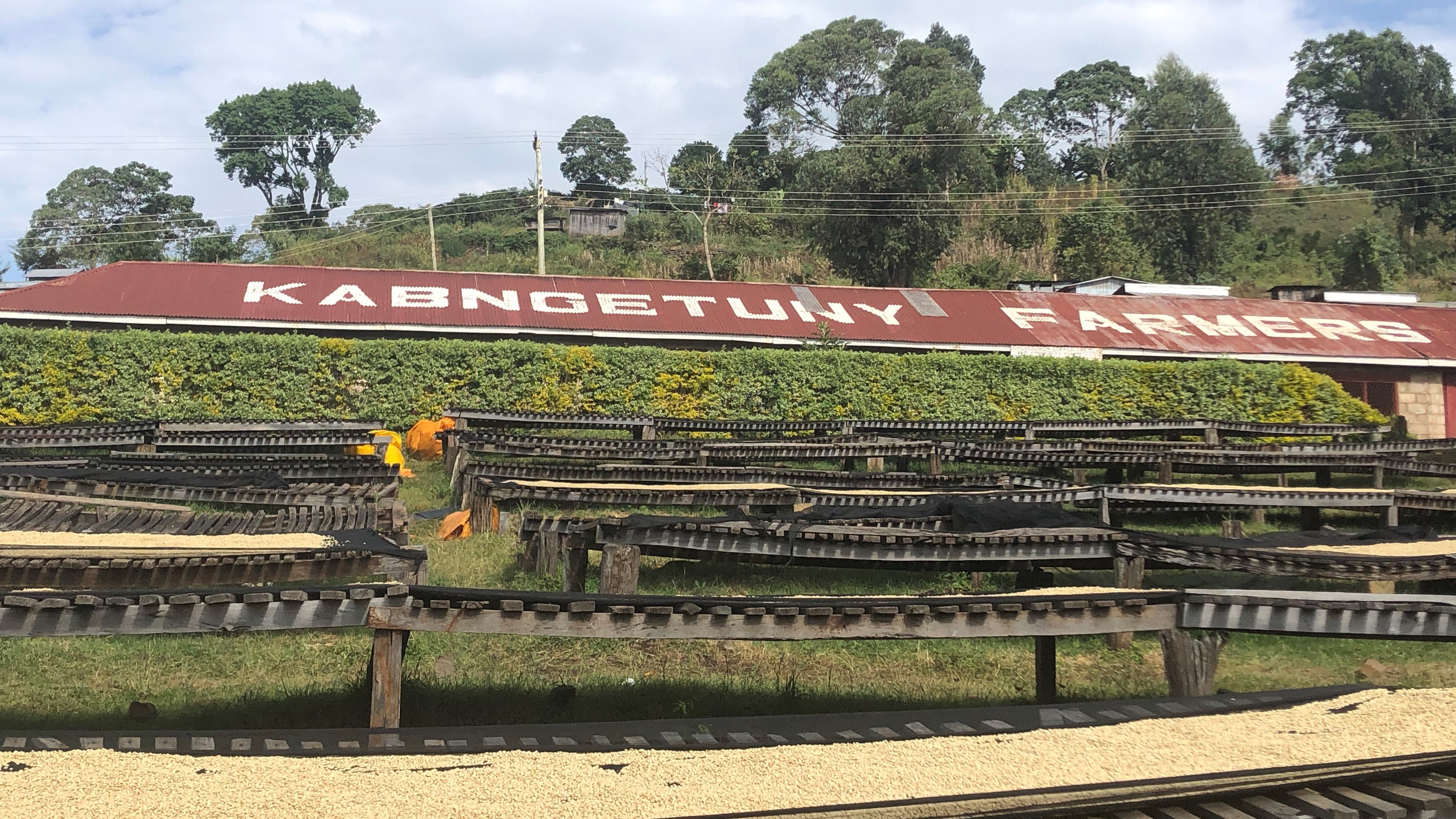Recent Post

Kapng’etuny – Women in Coffee and natural processed coffee
Steffen Sauer
Mar 28, 2021
On day 5 we visited the Kapng’etuny farmer co-operative which started back in 2015 to empower women coffee farmers in the Kapkiyai Cooperative to earn an income independent from their husbands for the first time. Female farmers in Kenya rarely owned land or coffee bushes, despite contributing up to 70 - 80% of the labour required to plant, grow and harvest coffee.
Fairtrade Africa recognize Kabng’etuny as one of the first cooperatives to incorporate gender mainstreaming within its operations. The support for the movement initially was met with heavy opposition culturally by farmers who refused to give up land and coffee bushes, until the husbands of the women stepped in to directly support and get behind the movement. They transferred full ownership of land and coffee bushes exclusively to their wives to produce and be completely in charge of their own coffee productions and harvest. This was the opportunity and spark the industry needed.

The Women in Coffee Association was supported by Fair Trade to build capacity of 300 women coffee farmers on Good Agricultural Practices (GAPs) towards increasing coffee quality and yield.
Over 80% of the women’s production is mainly AA & AB grades of Arabica coffee and their coffee is handled separately during all the processing stages.
With this proactive approach towards breaking traditional patterns in the sake of progress it is not surprising that we also found natural processed coffee (red cherries in the picture below) next to the typical washed processed coffee.

The cherries are dried in the full sun on a concrete patio for several days until the pulp gets brittle and can easily fall off the beans. Then, the beans are dried again, without the pulp, until they reach the adequate moisture level. During all the time, the cherries are raked and turned several times a day to ensure even drying and to prevent them from spoiling. They get covered at night or during rain. After the cherries have been dried to the optimum level, they are sent to mills to separate the seeds from the rest of the dried fruit.

Coffee processing using this method results in a characteristic intense fruity flavor profile with winey or berry notes. It gives a full body and sweetness combined with lower acidity than in the case of wet-processed coffees.
Right after our super interesting visit to Kapng'etuny society - we started to head back to Nairobi. To be more precise we decided to drive to Lake Naivasha to take half a day off after our packed agenda the last days. Lake Naivasha is Rift Valley's highest lake (at 1884m above sea level), an oasis only a short drive away from Nairobi. We decided to enjoy a nice dinner and a boat safari the next morning before continuing our trip to Nairobi. More next week!
← Older Post Newer Post →



